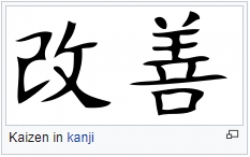Last time I wrote about five of the most common mistakes CEOs make. Today I present five CEO’s excellent decisions that led them to great achievements. Some of those decisions were taken at a moment of crisis and turned things around. Others were taken by intuition and led the way to success. Making these decisions required courage and determination.
In hindsight, one might think the decisions were not so daring. But remembering the conditions and risks under which they were taken, one would appreciate their magnitude. The CEOs who took these decisions demonstrated conviction and persistence against internal and external objections and short-term fall backs.
All the decisions were based on gut feelings and intuition, on which I will expand later.
Eyal Milman identifies new trends of global dental markets and goes all out
Eyal Milman and Yehezkel Adin established Adin Dental Implant Systems Ltd in 2001. Eyal, who was the CEO, had an excellent intuition as to what direction the company should take. With no dental education or prior knowledge about dental implants manufacturing, he identified the sales potential of high-quality dental implants and decided to go all out for it.
By intuition he detected that:
- Good quality implants were selling at high prices. He assumed that by selling good quality implants at substantially low prices, he could win markets and increase profits.
- There was a small window of opportunity. He knew that if he didn’t act fast, other companies would penetrate the markets and he would miss the chance.
Both these insights were on his mind when he started pushing his way into new global markets. He took advice from dentists and leaders of public opinion, whom he had taken with him to conferences around the world. His excellent conception of the global markets and his ability to win new customers led him to control the marketing process.
Because he spent much of his time travelling abroad, he was constantly searching for reliable managers to run the business at home, especially the manufacturing operations, quality and regulations.
Eyal also had unique financial abilities. He controlled the financial side of Adin Dental Implants and oversaw all cashflow issues.
Unlike many other CEOs I know, Eyal learnt how to take advantage of the Israeli governmental grants system. Wisely, he appointed one of his more talented employees to find, submit and monitor applications for government grants.
Eyal used to repeat his Mantra again and again: “The window of opportunity is small and when more customers are persuaded that Adin’s dental implants offer the best quality, the sky is the limit”.
The dental implants market is conservative. Dentists don’t hurry to change suppliers when they are satisfied with the product and service they receive. Much effort and determination were required to penetrate such a traditional market.
Eyal told me last week that Adin Dental Implant Systems Ltd is currently a strong label and it no longer requires public opinion leaders for marketing. He said the company currently controls 2% of the global market.
Considering how quickly the dental implants’ market has grown over the last few years, we can appreciate the enormous success of a local company who started from nothing.
Yoav Katz’s cultural revolution improves work relations at the north branch of Haifa Chemicals Ltd
Yoav Katz was appointed CEO of the north branch of Haifa Chemicals Ltd at the end of a seven-month dispute between management and employees and a long strike. Yoav had an excellent intuition: to implement a new approach for management employees’ relations, which resulted in great success for the company.
Management and employees had been arguing for seven long months. Neither side would compromise to reach an agreement. Salaries were not paid, and the company lost millions of dollars. This was not the first dispute. A similar conflict occurred during the 90’s.
When Yoav started his position as CEO, a work agreement had already been signed, but the employees were not happy, and the embers of the conflict were still simmering under the surface.
Yoav was an electrical engineer. With no experience in Human Resources he realized that continuing in the old ways would achieve the same results. He decided to change the company’s work culture and management approach to employees. He started by cascading authority to employees and involving them in problem-solving processes. He assembled teams and various forums that enhanced employees’ engagement. At the same time, he implemented strict discipline. He stopped bullying behavior of powerful employees (formal or informal power), their misconduct and corruption. These actions enhanced employees’ motivation and loyalty because it made them feel they mattered and were essential to the company’s success.
By the way, no one likes people who use their power for personal gains. Therefore, the employees valued Yoav’s new policy to eradicate corruption and misconduct.
Higher management members of Haifa Chemicals Ltd observed Yoav’s actions with suspicion, but after realizing the productivity growth and the company’s profit, they allowed him to lead his new method and did not interfere.
Tovy Sivan aims at High Technology and seeks synergy with young entrepreneurs
When Tovy Sivan completed his professional army service in the Israeli Air Force, his family owned an industrial manufacturing company, Ham-let Ltd. It was a traditional, skilled company known for its conventional manufacturing methods.
Tovy is one of those people who aims high. Driven by strong intuition and conviction to succeed, while enjoying the process, he established Surface Technology International (STI), a specialist Contract Electronics Manufacturer.
Unlike Ham-let Ltd, STI placed itself at the top end of the metal industry. It used cutting edge technologies for Laser machining, finishing, three-dimensional printing, and clean rooms to manufacture medical implants, surgical instruments, and metal components for the aviation industry.
Tovy Sivan had the idea to provide space and services to new initiatives. He believed that supporting young companies would enable STI to use their contacts and form synergies. He also realized that collaborating with upcoming companies would improve STI’s manufacturing capabilities and help develop innovative products. In fact, he wanted to create a new future, starting from a zero standpoint.
Progress was slow. One step at a time, during which the company signed cooperation agreements with global medical firms based in Europe, Japan, China and North and South America.
Founding STI was Tovy’s first step towards fulfilling his dreams and aspirations. Over many years and while still advancing STI, Sivan developed several collaborations with pioneering medical startups and innovating medical projects.
Tovy Sivan, Zivi Raanan and other management members began branching out and forming connections with young startups before STI reached stability. When STI built a new home for the company, they added an extra floor designated specially for upcoming startups.
As CEO and owner of STI, Sivan faced objections from other STI management members who did not appreciate the added activities and investments they had to apply while still developing.
STI was sold twenty years later, in 2018, to the American global corporation Resonetics. Later, Tovy purchased the rights of Virtual Ports Ltd a manufacturer of products for Laparoscopic surgery.
Through his professional experience in the Israeli Air Force, his engineering qualifications, his knowledge of the traditional industry and his company’s investments in cutting edge medical equipment and implants manufacturing, Tovy paved the way towards making many Israeli companies globally successful.
Many obstacles stood in his way, but he had a vison that helped to develop a nationally successful new industry.
Danny Mann looks after his employees during Covid
Throughout the Covid pandemic, when many companies were firing employees or sending them for furlough, Danny maintained his workforce.
The business world came to a halt when Covid- 19 broke out and the future became uncertain. Many companies closed. Some recovered quickly by using the opportunity to change. Others sunk.
In the second article I published during the pandemic Loss of trust between employers and employees
I wrote that in my estimation, the mistrust that employees felt towards their employers […] would continue to grow. Employees would become less committed to the company’s goals and good workers would seek out better employment.
I needed no prophetic abilities to understand what was going to happen after the pandemic ended.
Danny Mann, a devoted reader of my blog, wrote to me then:
“Dear Zeev,
Having read your article, I would like to share with you the following:
We own two companies. One stopped recruiting new employees though it hadn’t suffered any losses (around 25 employees), the other experienced a substantial decrease in business and loss of profit. (About 10 employees).
At the second company we took the following steps:
- We fired one employee. His dismissal was necessary for professional reasons but occurred two months before plan.
- We stopped the recruitment process of one employee who was about to start working the following week.
Both actions were accepted by most staff members. The second because nearly everyone was affected by the fired employee’s inadequacy. - We asked all our employees to accept a substantial wage cut and adopt a ‘more time with my family’ policy. The employees were also asked to temporarily waver company payments towards their professional education fund. They agreed in order that no more employees would be dismissed, and everyone gets through until business is back to normal.
- The employees agreed that I, as CEO of the company, would decide, at the end of every month, how much money is paid in salaries, based on the performance and earnings of the previous month (within the limits of minimum 20% pay cuts and maximum unemployment benefits entitlements).
- I am glad to report that, aside from a few objections, the agreement was accepted and implemented.
I wanted to share this information with you as it directly relates to your article.
Thank you,
Sincerely yours,
Danny”
I was amazed to read about the experience of a CEO who, at times of an unsettling future, understood the harm that dismissing veteran employees could cause the company and foresaw the employees’ appreciation towards management members and their loyalty in future hardships.
It is easy to undervalue past decisions in hindsight but we must remember that these decisions were taken during uncertain times, at a great risk to the company, while hoping that future profit would overcome the company’s losses.
Danny Mann was not the only one who acted as he did, but there were not many like him.
A few days later Danny told me that his partners, Oded Hamberger from HanDyMann and Oren Gilad, VP partner at Effective Implementations shared the decision making process with him. All three deserve praise for their insight and intuition.
Tal Raz establishes an online shop during Covid
Tal and Amir Raz are the owners and CEOs of Gentlemen – It’s a man’s world chain of shops. I met Tal when the pandemic began to spread. Lockdown had not yet been fully implemented but the malls were closed. Most of Gentlemen’s shops were inside malls and sales stopped at once.
The pandemic posed a new, unfamiliar threat to the company as there was no idea when the malls would reopen. Tal, who had to pay out fixed costs , his vendors, and suppliers, was worried. He also did not know how much money the mall owners would charge for rent.
When I asked Tal about the possibility to open an internet shop, he replied that it was under way but not yet ready. He did not want to consider joining in partnership because that would have demand investing money he didn’t have. Furthermore, there were no available goods to sell because stocks were unreachable inside the locked-up malls.
Tal and Amir decided to jump into the deep end and open an internet shop before it was fully organized. Together with Ilan Skalier they engaged an enthusiastic team and opened the online shop.
We met again 18 months later. The pandemic was nearly over. We started to work together.
The decision to break out with an internet shop, even before it was fully planned, proved to be a successful decision. Internet shopping became common. People who had never shopped online quickly learnt how to do it and were spending money online instead of travelling abroad. Even today, people who would rather buy in street shops first check online.
Looking today at Tal’s decision to open an internet shop may not seem such a unique one. We may find it difficult to appreciate today the courageous it took to make such a shift. However, if we remember the global confusion at the time, we can acknowledge Tal’s courage.
Tal’s firm had no experience in online sales and most people were not shopping online. With their back to the wall, Gentleman online shopping took a risk and gambled on the internet.
Intuition and gut feelings
When I first started to manage Shamir Optical Industry Ltd I made many decisions based on gut feelings. I looked at the general picture and knew how to steer my way. But I never had the courage to take major steps on gut feeling or intuition.
I was looking for more and more reassurances before making a decision that would change the course of the business.
During those days I had been reading Peter Drucker’s books for the first time. Peter Drucker wrote about the power of gut feelings; the benefits it brings to those who dare to follow it and CEOs who often do it. His books gave me the reassurance I was looking for. He taught me very important lessons.
All five CEOs I have described above followed their gut feelings when making major decisions.
Summary and recommendations
First, I would like to thank Tal Raz, Danny Mann, Tobi Sivan, Yoav Katz and Eyal Milman for allowing me to publish their success stories and for their comments on the first draft. Apart from Danny, I had been working closely with all of them and learnt a lot from them.
A CEO’s job is a lonely job. Very often CEOs take life changing decisions on their own. Even after receiving professional advice and consulting other management members, in the end, they are the final decision makers. They are accountable for the results which are written under their names.
Those who are afraid to make decisions will never make bad ones, but they will also never grow. They will become stagnated and fail to lead their company to success.
To succeed, a CEO must be bold, courageous, and determined.












 My First Book: Manage! Best Value Practices for Effective Management
My First Book: Manage! Best Value Practices for Effective Management